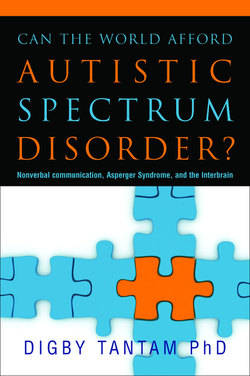Описание книги
The world affords to most of us a web of subliminal nonverbal communication that regulates our minds, indicates whether our beliefs have, or have not, social approval, and generally guides us. People with autism do not seem to be influenced by these subliminal signals as much as others, and this results in the difficulties in social interaction that are so characteristic of all the autistic spectrum disorders. How is such nonverbal communication carried out, and why do people on the autism spectrum find it so difficult? What are the consequences of this for them, and how do these consequences affect their personality, self-awareness, and sense of place in the world? Digby Tantam explores current theories on nonverbal communication and how it shapes social behaviour, and the evidence for it being impaired in people with autism spectrum disorder (ASD). He shows how knowledge of this difference can be used to overcome some of the impairments in nonverbal communication in people with ASD, but also how acknowledging them can result in more positive development elsewhere. This groundbreaking book will be fascinating reading for anyone interested in communication, as well as people who have ASD themselves, their families, and all professionals working with people on the autism spectrum.
